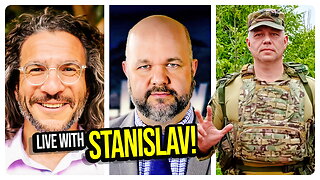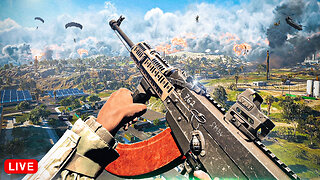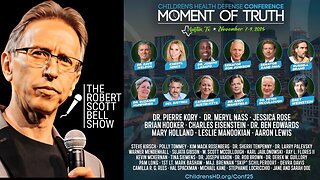Premium Only Content

Conversion Therapy: A Dangerous and Ineffective Practice
Imagine being told that a core aspect of your identity is a disease that needs to be cured. This is the reality for countless individuals subjected to conversion therapy—a practice rooted in pseudoscience and prejudice. Despite mounting evidence against its effectiveness and safety, conversion therapy continues to be a contentious issue. Join us as we delve into the grim history, harmful methods, and the global movement to ban this damaging practice.
**Section 1: What is Conversion Therapy?**
Conversion therapy, also known as sexual orientation change efforts (SOCE) or gender identity change efforts (GICE), aims to alter an individual's sexual orientation or gender identity to conform to heterosexual and cisgender norms. These practices range from counseling and hypnosis to more extreme measures like electric shocks and aversive treatments. While proponents often frame it as a path to "healing," medical professionals and activists rightly reject it as a form of psychological and sometimes physical torture.
** 2: The Ineffectiveness and Harm of Conversion Therapy**
Scientific consensus is clear: conversion therapy does not work. Studies consistently show that these practices are ineffective at changing sexual orientation or gender identity. More alarmingly, they frequently cause significant long-term psychological harm, including depression, anxiety, self-hatred, and even suicidal ideation. The notion that one's natural and healthy aspects of human sexuality need to be "fixed" is not only outdated but dangerously misleading.
**Section 3: The Historical Context and Misguided Pathologies**
Historically, conversion therapy emerged from the belief that same-sex attractions and gender nonconformity were pathological conditions. This perspective was deeply entrenched in the medical establishment of the 20th century. Today, we understand that homosexuality, bisexuality, and gender variance are natural aspects of human diversity. The shift from seeing these traits as pathologies to recognizing them as healthy variations has been a significant but challenging journey.
** 4: The Methods and Their Psychological Impact**
The methods used in conversion therapy are as varied as they are cruel. From brain surgery and hormonal castration to electric shocks and nausea-inducing drugs, the lengths to which these so-called treatments go are extreme. Even less invasive methods like counseling and spiritual interventions can leave deep psychological scars. Survivors of conversion therapy often report feeling traumatized, dehumanized, and profoundly damaged by their experiences.
* 5: Legal and Social Movements Against Conversion Therapy**
An increasing number of jurisdictions are recognizing the dangers of conversion therapy and taking steps to ban it. Laws prohibiting these practices, especially when performed on minors, are being enacted worldwide. These legal measures are crucial in protecting vulnerable individuals from abuse and affirming the dignity and rights of LGBTQ+ people. Advocacy and education are key in this fight, as public awareness drives policy change and societal acceptance.
**Section 6: Personal Stories and Advocacy**
Hearing from survivors of conversion therapy can be both heartbreaking and inspiring. These individuals often share harrowing tales of their experiences but also embody resilience and hope. Their stories highlight the urgent need for continued advocacy and support for those affected. Organizations and activists play a critical role in providing resources, education, and lobbying for legal reforms.
A Call to Action**
Conversion therapy is a relic of a prejudiced past that has no place in modern society. It is a dangerous practice that inflicts severe harm on individuals already struggling with acceptance and self-identity. As we move forward, it is imperative that we continue to educate, advocate, and legislate against this inhumane practice. Join us in spreading awareness and fighting for a future where everyone can live authentically and without fear of coercion or abuse.
Thank you for watching and learning about the critical issue of conversion therapy. If you found this video informative, please like, share, and subscribe to our channel. Your support helps us bring attention to important topics and advocate for positive change. Leave a comment below with your thoughts or experiences—we'd love to hear from you. Together, we can make a difference and ensure a safer, more accepting world for all.
-
 1:42:32
1:42:32
vivafrei
9 hours agoLive w/ Stanislav Krapivnik - Military and Political Analyst on Russia, Europe & Beyond!
58.2K18 -
 LIVE
LIVE
LadyDesireeMusic
2 hours ago $0.01 earnedYour Daily White Pill- Music & Convo
143 watching -
 LIVE
LIVE
StoneMountain64
5 hours agoBattlefield REDSEC UNSTOPPABLE WIN Squad
68 watching -
 1:40:36
1:40:36
The Quartering
5 hours agoKimmel Pulls Show Mysteriously, Youtube Collapse? & Much MOre
110K59 -
 LIVE
LIVE
cosmicvandenim
5 hours agoCOSMIC VAN DENIM | OFF CHARACTER | WARZONE PRACTICE
67 watching -
 2:08:06
2:08:06
The Robert Scott Bell Show
5 hours agoMike Adams, Brian Hooker, Live From Brighteon Studios in Austin Texas, Kids Triple Vaccinated, Blood Sugar and Autism, Candy Fed to Cows, Nutrition Reform - The RSB Show 11-7-25
41.5K7 -
 LIVE
LIVE
GritsGG
4 hours ago#1 Most Warzone Wins 3943+!
18 watching -
 1:15:58
1:15:58
DeVory Darkins
6 hours agoLIVE NOW: Democrats SABOTAGE GOP effort to reopen Government
114K61 -
 1:21:21
1:21:21
Tucker Carlson
5 hours agoThe Global War on Christianity Just Got a Whole Lot Worse, and Ted Cruz Doesn’t Care
70K263 -
 10:50
10:50
Dr. Nick Zyrowski
2 days agoDoctors Got It Wrong! This LOWERS CORTISOL In Minutes!
30.7K4